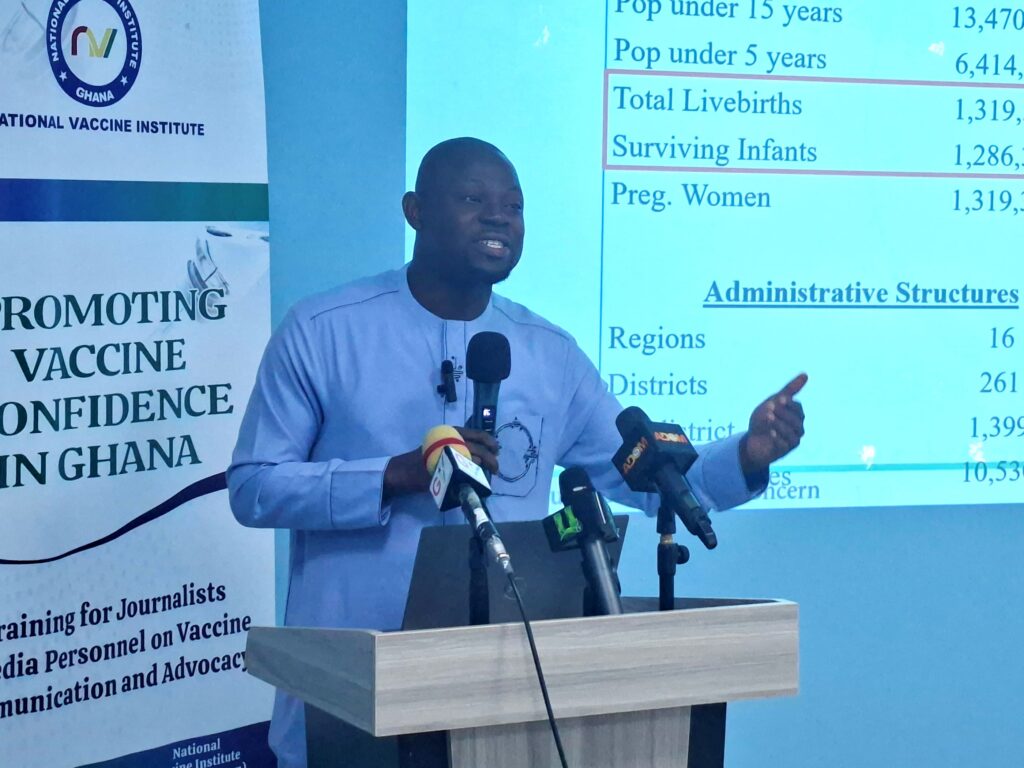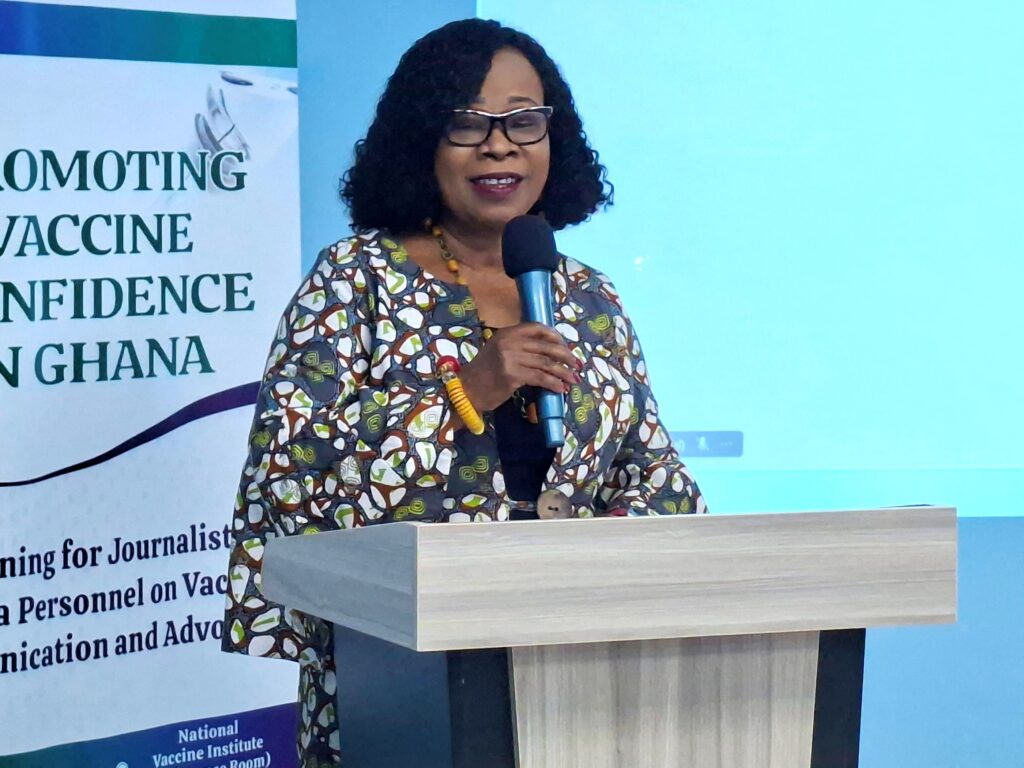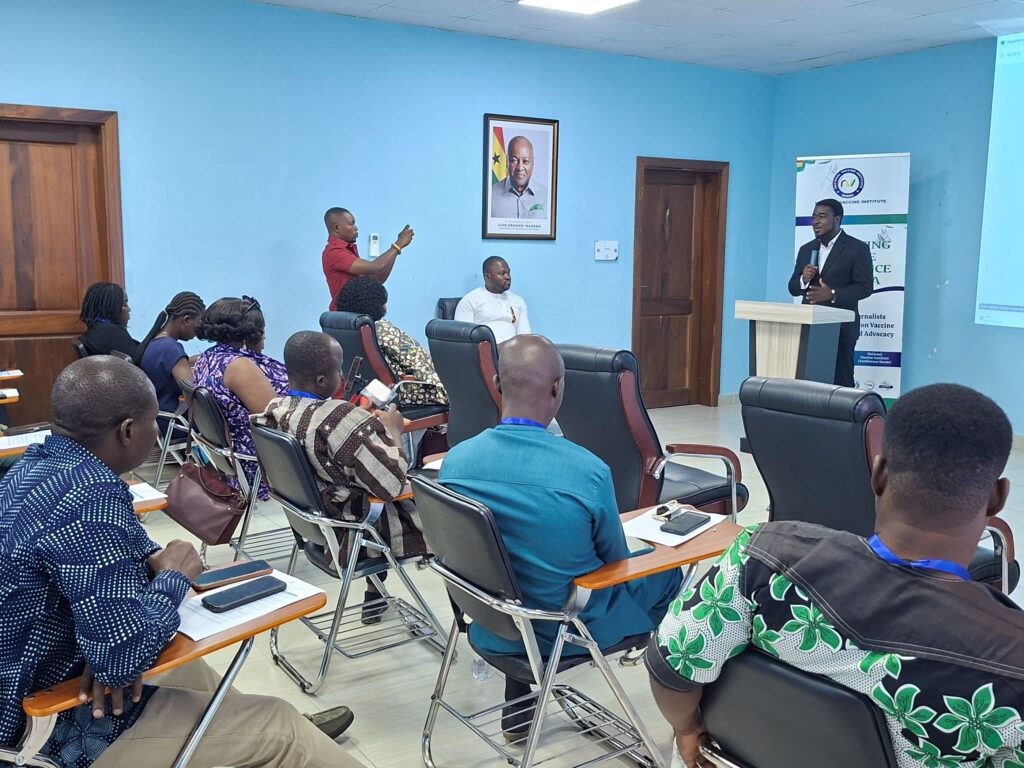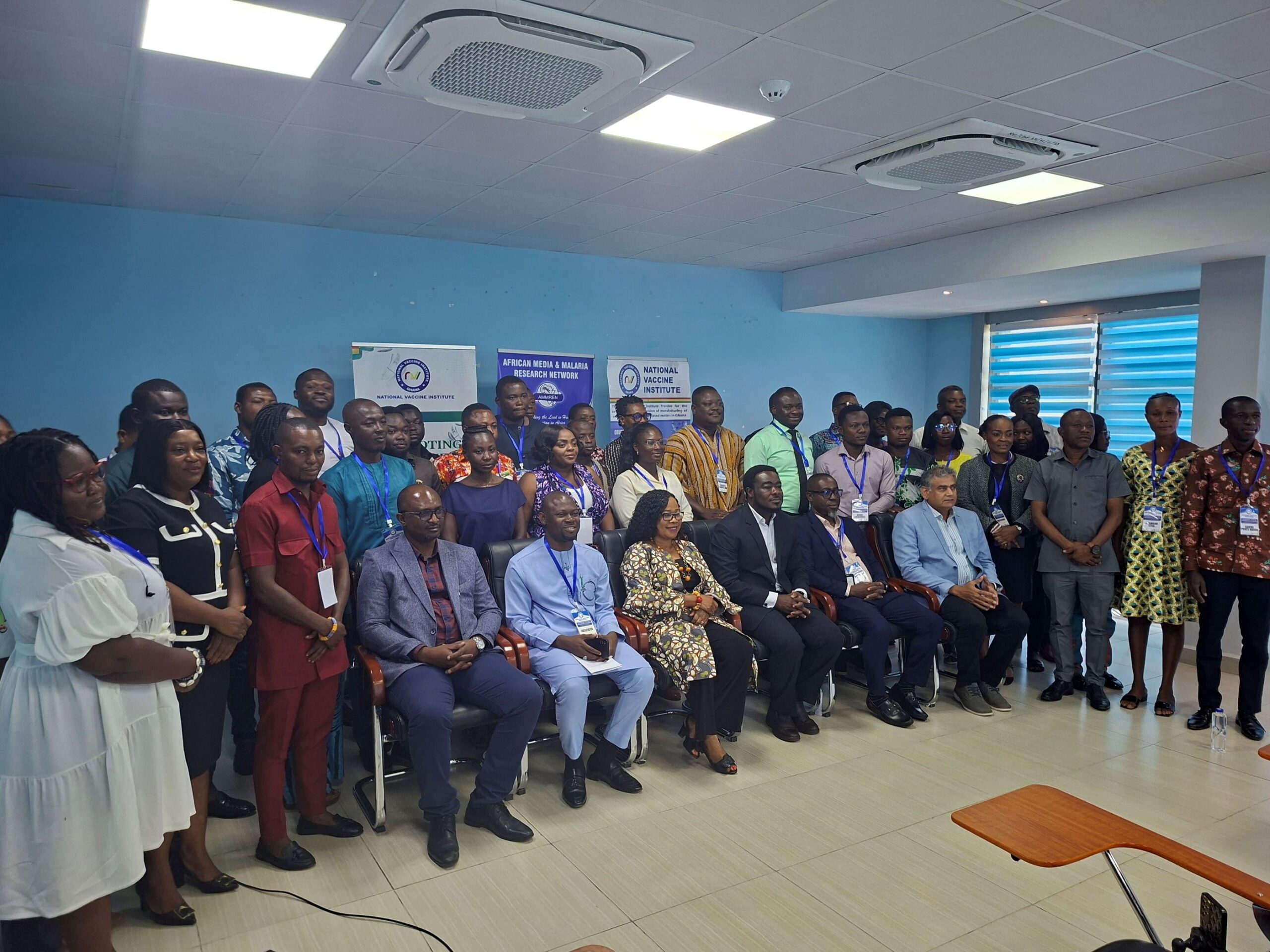By Jones Anlimah
Health leaders and communication experts have underscored the pivotal role of vaccine communication and advocacy in achieving the Sustainable Development Goals (SDGs), particularly those linked to good health and well-being (SDG 3), quality education, and reduced inequalities.
This came to light during a training on vaccine communication and advocacy. The event was organised by the National Vaccine Institute (NVI) and its partners including the African Media and Malaria Research Network (AMMREN). The session brought together journalists, scientists, and public health officials to enhance effective storytelling and combat misinformation on vaccines.
The Deputy Programme Manager of the Expanded Programme on Immunisation (EPI) of the Ghana Health Service, Dr. Naziru Tanko Mohammed, said immunisation remains a cornerstone of public health and a key enabler of sustainable development.
“Annually, vaccines prevent between two and three million child deaths globally. For every life saved, you cannot quantify its worth monetarily,” Dr. Tanko explained. “Vaccination not only protects individuals but also serves as a platform for other essential health services, including malaria prevention, nutrition, and growth monitoring.”

He noted that Ghana’s immunisation programme currently delivers 13 vaccines against 16 preventable diseases in all health facilities nationwide. All services, he emphasized, are free of charge, ensuring that no Ghanaian child is left behind due to economic barriers.
Dr. Tanko called on journalists to become active advocates for vaccine equity and trust, stressing that misinformation continues to hinder vaccine uptake in some communities.
“We must communicate science in a language people understand. Vaccines save lives — that is not a slogan; it is evidence,” he said.
The Executive Secretary of AMMREN, Dr. Charity Binka, commended the National Vaccine Institute for its partnership in empowering journalists to report accurately and responsibly on vaccine issues. She described the collaboration as “a shining example of what can be achieved when institutions come together with a shared vision.”
She highlighted the role of the media as a bridge between research and public understanding, noting that accurate, evidence-based reporting can help build public confidence in vaccines and health systems.

“Journalists hold tremendous power — the power to inform, educate, and influence public perception. In the age of instant information, your words can build trust or, unfortunately, break it,” she said. “When the media is well-informed, the public is well-protected.”
Dr. Binka emphasized that empowering the media with scientific knowledge and communication skills is essential for countering misinformation, promoting informed decision-making, and sustaining vaccine confidence.
She outlined six key objectives of the training: to help participants understand vaccine science, produce engaging health stories, counter misinformation, use data effectively, report with empathy, and strengthen collaboration with health authorities.
“Together, we aim to build a generation of journalists who are not just reporters, but champions of public health,” she added.
The Chief Executive Officer of the National Vaccine Institute, Dr. Sodzi Sodzi Tettey, reaffirmed Ghana’s commitment to vaccine self-sufficiency and communication excellence as part of broader efforts to strengthen the country’s health sovereignty.
“Vaccines are not just a health intervention; they are an investment in human capital and social development,” Dr. Sodzi said. “When we build trust in vaccines, we are building a healthier, more productive nation”.

He added that Ghana’s National Vaccine Institute is working with partners to expand local vaccine production capacity, enhance public awareness, and create sustainable health systems that ensure equitable access to immunisation across all regions.
At the end of the training, the clarion call was for stronger collaboration between media professionals, scientists, and policymakers to amplify accurate vaccine information and dispel myths. Participants were urged to uphold journalistic integrity in their reporting on vaccines and other health interventions.
The initiative by NVI aligns with Ghana’s national health agenda and supports the global push toward achieving SDG 3 (Good Health and Well-being) and SDG 17 (Partnerships for the Goals) through effective communication, advocacy, and partnership.





